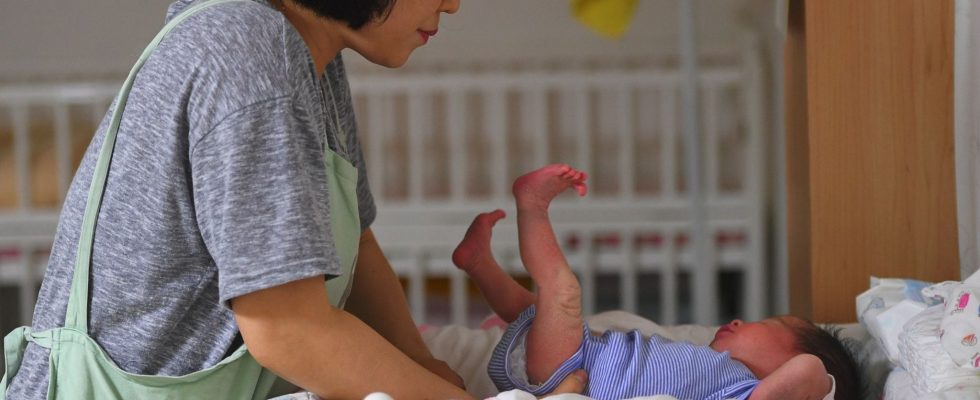South Korea is sinking into a declining birth rate. By the admission of the Minister of Justice, Han Dong-hoon, “South Korea risks extinction, due to its demographic crisis”, he declared this Thursday, December 6. With less than one child per woman in 2022 (0.78), the country has the sad record of the lowest fertility rate in the world. The population there has been declining for 43 consecutive months, according to an August report from the statistical agency Statistics Korea. If current trends continue, South Korea’s population will be halved by the end of the century.
For Justice Minister Han Dong-hoon, whose words resonated across borders in the face of this alarming observation, controlled immigration appears to be the only effective solution to halt demographic decline.
Promote controlled immigration
According to the Singapore daily The Straits Times, “Mr. Han’s latest remarks are part of President Yoon Suk-yeol’s efforts to create a new government agency that would serve as a control tower for immigration affairs.” But this migratory reception policy is not new. Already, for 20 years, Seoul has opened the door to migrants from Southeast Asia, Pakistan and Sri Lanka in particular. More recently, access to work visas to a larger number of pre-selected countries such as Nepal, India and Lithuania has been ordered.
“The immigration policy that I intend to implement does not aim to bring in as many foreigners as possible,” said the Minister of Justice. “We want to carry out in-depth assessments and do not accept only the foreign nationals we need, while strengthening the crackdown on illegal residents.”
Birth bonuses increased by half
To try to convince the South Korean “sampo generation”, in reference to these young people who do not want romantic relationships, marriage or children, the government continues to make announcements. At the start of the year, new President Yoon Seok-Youl increased the birth bonus, from around 210 euros to 500 euros per month for the first year, then 250 euros per month for the second year.
This increase should continue in 2024 and increase to 710 euros per month for the first year and 350 euros for the second. At the same time, it plans to open 500 additional public daycare centers per year until 2027. In September, the government declared that it had spent, in 16 years, the equivalent of $200 billion to encourage families to have children. , particularly in the form of allowances.
The economic policy in question
Among the factors that can explain a drop in the birth rate, some specialists cite in particular the South Korean work culture, which values long hours spent in the office. The legal working week of 40 hours, with a ceiling of 12 additional hours possible, seems incompatible with family life for many working people.
At the beginning of September, the government launched a program aimed at encouraging the arrival of domestic workers in this country of just over 51 million inhabitants. These foreign workers, mostly women from Southeast Asia and the Philippines, paid minimum wage, are supposed to encourage women to have children, while keeping their jobs.
